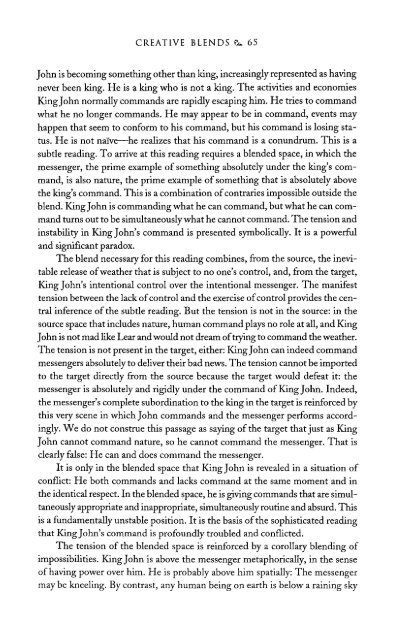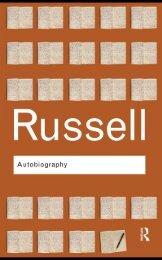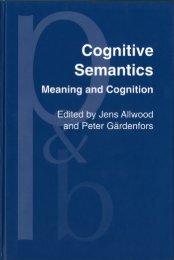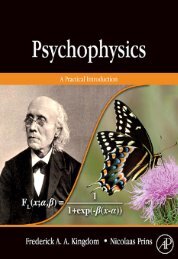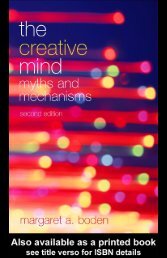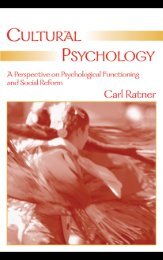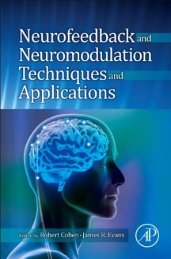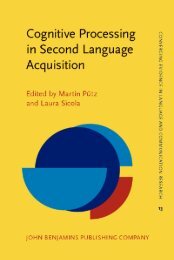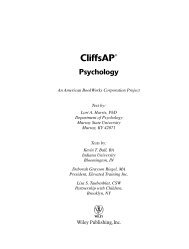The Literary Mind.pdf
The Literary Mind.pdf
The Literary Mind.pdf
You also want an ePaper? Increase the reach of your titles
YUMPU automatically turns print PDFs into web optimized ePapers that Google loves.
CREATIVE BLENDS 65<br />
John is becoming something other than king, increasingly represented as having<br />
never been king. He is a king who is not a king. <strong>The</strong> activities and economies<br />
King John normally commands are rapidly escaping him. He tries to command<br />
what he no longer commands. He may appear to be in command, events may<br />
happen that seem to conform to his command, but his command is losing status.<br />
He is not naive—he realizes that his command is a conundrum. This is a<br />
subtle reading. To arrive at this reading requires a blended space, in which the<br />
messenger, the prime example of something absolutely under the king's command,<br />
is also nature, the prime example of something that is absolutely above<br />
the king's command. This is a combination of contraries impossible outside the<br />
blend. King John is commanding what he can command, but what he can command<br />
turns out to be simultaneously what he cannot command. <strong>The</strong> tension and<br />
instability in King John's command is presented symbolically. It is a powerful<br />
and significant paradox.<br />
<strong>The</strong> blend necessary for this reading combines, from the source, the inevitable<br />
release of weather that is subject to no one's control, and, from the target,<br />
King John's intentional control over the intentional messenger. <strong>The</strong> manifest<br />
tension between the lack of control and the exercise of control provides the central<br />
inference of the subtle reading. But the tension is not in the source: in the<br />
source space that includes nature, human command plays no role at all, and King<br />
John is not mad like Lear and would not dream of trying to command the weather.<br />
<strong>The</strong> tension is not present in the target, either: King John can indeed command<br />
messengers absolutely to deliver their bad news. <strong>The</strong> tension cannot be imported<br />
to the target directly from the source because the target would defeat it: the<br />
messenger is absolutely and rigidly under the command of King John. Indeed,<br />
the messenger's complete subordination to the king in the target is reinforced by<br />
this very scene in which John commands and the messenger performs accordingly.<br />
We do not construe this passage as saying of the target that just as King<br />
John cannot command nature, so he cannot command the messenger. That is<br />
clearly false: He can and does command the messenger.<br />
It is only in the blended space that King John is revealed in a situation of<br />
conflict: He both commands and lacks command at the same moment and in<br />
the identical respect. In the blended space, he is giving commands that are simultaneously<br />
appropriate and inappropriate, simultaneously routine and absurd. This<br />
is a fundamentally unstable position. It is the basis of the sophisticated reading<br />
that King John's command is profoundly troubled and conflicted.<br />
<strong>The</strong> tension of the blended space is reinforced by a corollary blending of<br />
impossibilities. King John is above the messenger metaphorically, in the sense<br />
of having power over him. He is probably above him spatially: <strong>The</strong> messenger<br />
may be kneeling. By contrast, any human being on earth is below a raining sky


